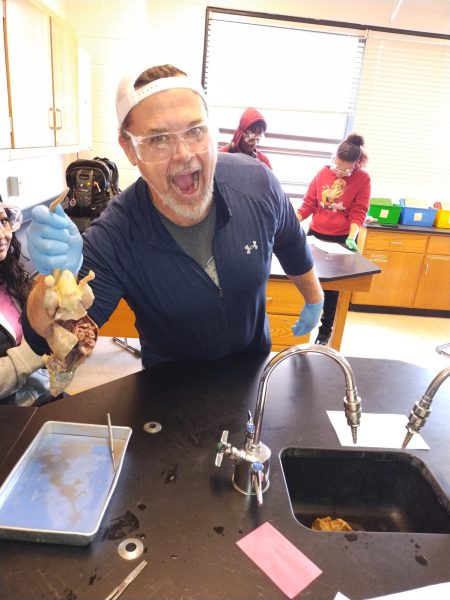What exactly is the fentanyl crisis and what is MCPS doing to address it?
In the past school year, there have been several cases of drug overdose.
Fentanyl. Fentanyl. Fentanyl.
It seems like fentanyl is all anyone is talking about. We all know better than to take fentanyl, so why is this still an issue?
The synthetic opioid fentanyl is in more items than just pills, being found in common drugs like marijuana or prescription pills like Xanax. Fentanyl is manufactured both pharmaceutically and illicitly, and is commonly used to treat severe pain.
An article by the Washington Post stated that youth overdoses in Montgomery County have risen by 77 percent since 2022. “No one is immune to [drug overdoses]. It doesn’t matter what community you’re looking at,” said school community health nurse Lisa Frost. “Everyone is at risk. Especially in high schools obviously with teenagers, and parties, and peer pressure.”
A recent forum held at Clarksburg High School invited county residents to hear more about the current crisis. Following the forum, several precautions have been put in place, including the mandatory training of staff and security on how to administer naloxone, commonly known as Narcan, which is the drug that reverses opioid overdose. Health room staff carry Narcan as well. Additionally, there is the On-Site School Emergency Team (OSET), which is comprised of admin and staff who receive emergency and crisis preparedness training.
“It’s an issue to a certain point we cannot control…many use drugs as a coping mechanism,” said sophomore Ethan Rodriguez. “I feel like maybe schools should focus a bit more on [the opioid crisis] to help these students.”
Guest speakers may be invited to further educate the students on the dangers of illicit drugs like fentanyl. At the Clarksburg forum both students, and county residents were invited to take individual doses of naloxone, to be carried, and used in the case of a potential overdose.
“The illegal sale of [drugs] obviously scares me,” assistant principal Ryan Graves said, “although [the OSET team] tries…talking about [the issue and] bringing in guest speakers, [drug overdoses] still happen. Graves added that, “the scary part,” is “I don’t know personally how to prevent it all.”
For further information on Fentanyl and how to avoid it, visit https://www.dea.gov/ and https://facingfentanylnow.org/
Your donation will support the student journalists of Watkins Mill High School. Your contribution will allow us to purchase equipment and cover our annual website hosting costs.














Glenda Scott • Mar 27, 2023 at 1:01 pm
this is great! keep up the good work girls!